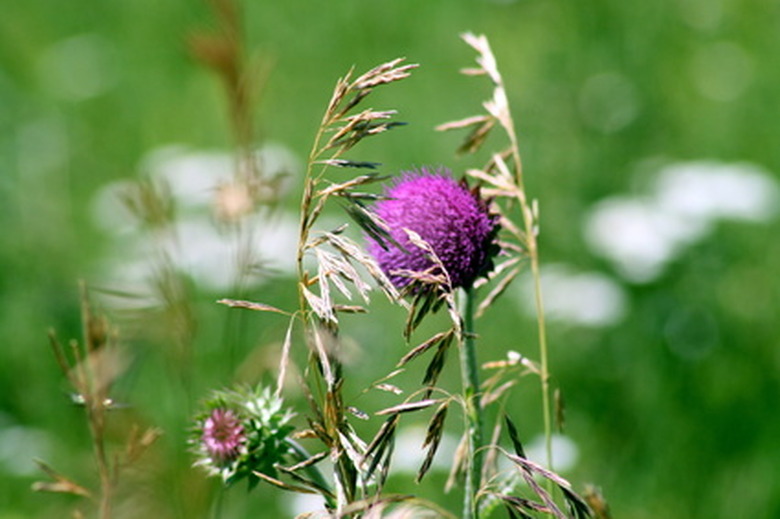Soap As A Wetting Agent For Herbicides
Gardeners often have trouble with losing post-emergent herbicide chemicals due to rain and irrigation. This causes wasted chemicals and potential dangers to nearby water systems. One technique to avoid loss is by mixing common dish soap with garden sprays. The compounds will bind the herbicidal chemicals to the plant and help retain their effectiveness during rainy weather.
Definition
Dish soap is a wetting agent, or a substance that reduces surface tension and enhances the effectiveness of garden sprays. Soap, when used as an additive to garden sprays, will help stick the chemicals to the plant surface tissue when applied.
Function
Common dish soap works as a wetting agent by making the garden spray smooth and reducing the surface tension of the chemicals. This allows the spray to cover the entirety of a leaf's surface. The liquid will spread out across the entire surface area instead of beading in drops which will be taken away during rainfall or windy climates.
- Gardeners often have trouble with losing post-emergent herbicide chemicals due to rain and irrigation.
- Soap, when used as an additive to garden sprays, will help stick the chemicals to the plant surface tissue when applied.
Effects
As a wetting agent, soap remains effective for up to 10 days, depending on the weather conditions during that time. Researchers have found that commercial wetting agents sold by various manufacturers will on average last five to seven days longer than dish soap under the same conditions.
Benefits
Gardeners will find that adding soap to herbicides will have various beneficial effects. It will protect plants from various insect pests by acting as an insecticide that penetrates the insects' bodies. Soap also protects pesticides from rainfall which will cleanse the area, meaning the gardener won't have to spray the garden as often.
Warnings
Many commercial products sold in nurseries and garden stores are inexpensive and are slightly more effective than dish detergent. It is also important to use eco-friendly brands when and where possible to help avoid adding toxicity to nearby environments that may be sensitive to unabsorbed chemicals that penetrate the soil. All manufacturer instructions should be followed when using any pesticide.
- As a wetting agent, soap remains effective for up to 10 days, depending on the weather conditions during that time.
- It is also important to use eco-friendly brands when and where possible to help avoid adding toxicity to nearby environments that may be sensitive to unabsorbed chemicals that penetrate the soil.
References
- Plant Care: Wetting Agents: Getting the most out of Your Sprays
- "Pesticides: Problems, Improvements, Alternatives"; Frank Den Hond, Peter Groenewegen, and Nico van Straalen; 2003
- "Fundamentals of Weed Science"; Robert L. Zimdahl; 1998
